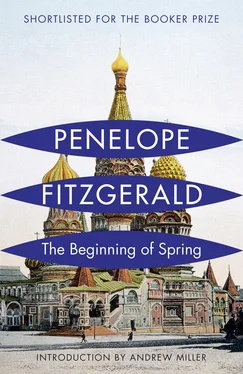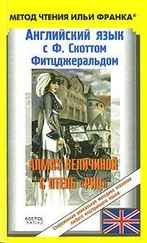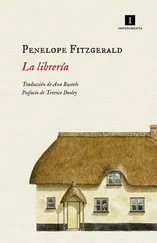‘How old is he exactly?’ asked Ben. ‘There are regulations, you know, about how old they’re allowed to be.’ The sleigh-driver said he was a young devil.
‘They’re all young devils,’ said Frank. ‘Now I want to get them home to Lipka Street.’
They might have been away several years. The whole household, the house itself, seemed to be laughing and crying. From the carnival – that was what it felt like – only Dunyasha was absent. Almost at once she came to Frank for her internal passport, which was necessary if you were going to make a journey of more than fifteen miles, and had to be handed over to the employer. She wanted to leave, she was no longer happy in the house, where criticisms were being made of her. Frank took it out of the drawer in his study where he kept such things locked away. He felt like a man with a half-healed wound who would do better to leave it alone, for fear of making bad worse. Nellie had sent no message to him by the children, not a word, and he saw it would be best not to think about this, or he might not be able to stand it. His father had always held that the human mind is indefinitely elastic, and that by the very nature of things we were never called upon to undertake more than we could bear. Frank had always felt doubtful about this. During the past winter one of the machine men from the Press had gone by night to a spot a little way out of the Windau station, and lain down on the tracks. This was because his wife had brought her lover to live in their house. But the height of the train’s wheelbase meant that it passed right over him, leaving him unhurt, like a drunken peasant. After four trains had passed he got up and took the tram back to his home, and had worked regularly ever since. This left the question of endurance open.
While the rejoicing went on and spread to the yard and, apparently to the yard dog and to the hens, locked up for the winter, Dolly came in wearing her brown uniform from the Ekaterynskaya Gymnasium, and asked him to help her with her homework, since after all, she had to be at school by nine o’clock. She spread out her atlas, ruler, and geography exercise book.
‘We’re doing the British Isles. We have to mark in the industrial areas and the districts largely given over to keeping sheep.’
‘Did you take those with you on the train?’ asked Frank.
‘Yes. I thought they might come in useful, even if I didn’t ever get back to the Ekaterynskaya.’
‘It was lonely in the house while you were away, somewhat lonely, anyway.’
‘We weren’t away for very long.’
‘Long enough for me to see what it was going to be like.’
Dolly asked: ‘Didn’t you know what mother was doing?’
‘To tell you the truth, Dolly, no, I didn’t.’
‘I thought not,’ she added rapidly. ‘It was hard on her. After all, she’d never had to look after us before, Dunyasha did everything. Annushka wouldn’t sit still. Mother asked the attendant for some valerian drops, to calm her down, but he hadn’t any. We should have brought some with us, of course, but I didn’t do the packing. You shouldn’t have expected her to manage by herself. She had to send us back, we weren’t a comfort to her. I think you asked too much of her.’
‘I don’t agree, Dolly. I know my own mind, but so does your mother.’
Frank’s father, Albert Reid, had looked ahead – not quite far enough, perhaps, but to see too clearly in Russia is a mistake, leading to loss of confidence. He was aware that the time was coming when British investors, ironmasters, mill-owners, boiler-makers, engineers, race-horse trainers and governesses would no longer be welcome. Either the Russians would take everything into their own hands or the Germans would, but he thought that the good times would last a while yet. All that had really been needed, when he started out in the 1870s, was a certificate to say that the articles of association of your company were in accordance with British law and another form in St Petersburg to say that your enterprise was advantageous to the interests of the Russian Empire. Besides that, though, you had to have a good digestion, a good head for drink, particularly spirits, a good circulation and an instinct for how much in the way of bribes would be appropriate for the uniformed and for the political police, the clerks from the Ministry of Direct Import, Commerce and Industry, and the technical and sanitary inspectors, to get anything at all. These bribes, too, must be called gifts, and with that word you began your study of the Russian language. All the other formalities – sending the balance sheets, for example, to the central government and the local Court of Exchequer – were just paperwork, which he’d done himself, with his wife’s help, by lamplight, in the old wooden house on the works site in the Rogoznkaya. Like the Russian nobility and the Russian merchants, foreign businesses were given ranks, according to their capital and the amount of fuel (soft coal, birch-bark, anthracite, oil) that their factory consumed. Reid’s (Printing Machinery) was of moderate rank. Frank’s father and mother were the only partners. Both of them had come from long families, that was why Bert had been sent out in the first place to make a living in Russia, but they only had the one son. Frank was sent over to England once or twice as a boy, to stay with his relatives in Salford. He enjoyed himself in Salford because, given half a chance, he enjoyed himself anywhere. When he was eighteen he went back for much longer, to train in mechanical engineering and printing, first at Loughborough Polytechnic, then for his apprenticeship with Croppers of Nottingham.
It was while he was at Croppers, doing quite reasonably well, and playing football for the first time in his life, that his father wrote to him to say that, as a kind of subsidiary to the business, he was going to start his own printing press, quite near the centre of Moscow, in Seraphim Street. There was nothing legal at the moment against foreigners buying property, as long as it wasn’t in Turkestan or the Caucasus or anywhere where they were likely to strike oil, and he thought the place could be got fairly cheap. He’d start with hand presses only, jobbing machines, and see how they went along. It was an old warehouse, this place, and there was room to expand. Even though the deal wasn’t concluded yet, the men were already calling it Reidka’s – dear little Reids.
There was a photograph enclosed of Seraphim Street, looking like most of Moscow’s side-streets, almost past repair, blank, narrow, patched and peeling, with children crowded around a horse and cart selling something unidentifiable. Above was a white sky with vast, even whiter clouds. The shop-signs made Frank feel homesick. Perlov’s tea-bricks, Kapral cigarettes 20 for 5 kopeks, and a kabak with a name that looked like Markel’s Bar.
His father usually gave the date Russian style, thirteen days earlier than the date in Nottingham, so that there was some adjustment to be done, but it must have been in March that year that there was mention of Selwyn Crane, who’d been taken on, not at the works, but to do the accounting at Reidka’s. A few weeks later it seemed that Crane was becoming very religious. ‘I’ve no objection to that, though on the whole I think religion is of more use to a woman than a man, as it leads to content with one’s lot.’ In the next letter, Bert doubted whether ‘religious’ was quite the right word. ‘Spiritual’ would be better. ‘Crane has now proclaimed himself a vegetarian, which I do not think is enjoined anywhere in the Bible, and he tells me he’s several times been in quite lengthy conversations with Count Tolstoy. Tolstoy is a very great man, Frank,’ he continued. ‘Fortunately, though, one doesn’t have to judge of great men by the oddities of their disciples. The truth is, though, that Crane has a knack with figures and has been up to now a pretty fair man of business – he came to me from the Anglo-Russian Bank. I asked him whether it was not rather surprising that he should have saved a reasonable sum of money, as I fancy he has done – he is not a married man – and continues to live off the said sum and the salary I pay him, while giving it out as his opinion that buying or selling of any kind or description is a sin against mankind. It’s rather, he said, that wealth shouldn’t be used for the benefit of individuals. Then, you consider me a wrong doer, Crane, I said, determined to treat the whole matter in a spirit of joke, the next thing will be that you’ll refuse to shake me, your employer, by the hand. I thought I’d caught him there, but what he did was to kiss me, first on one cheek and then on the other – a Russ habit, as you well know, but this was on the shop floor, Frank, not even in the counting house.’
Читать дальше












